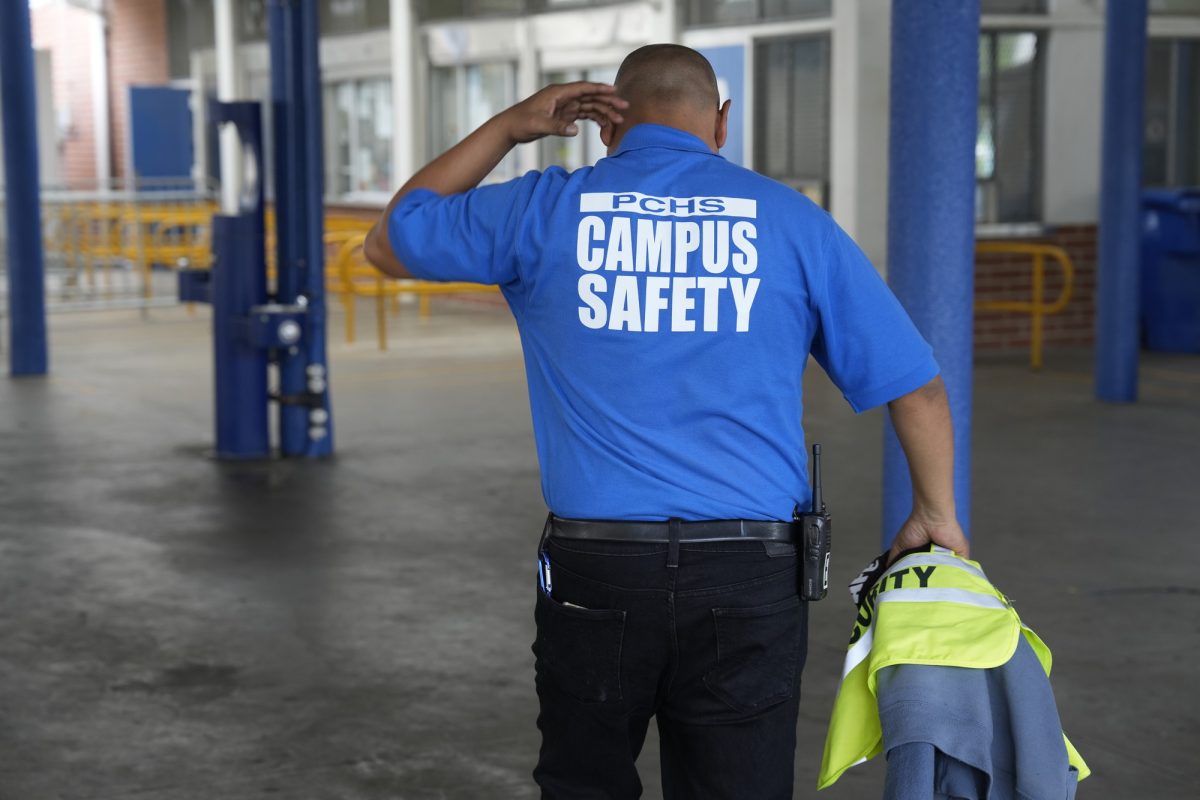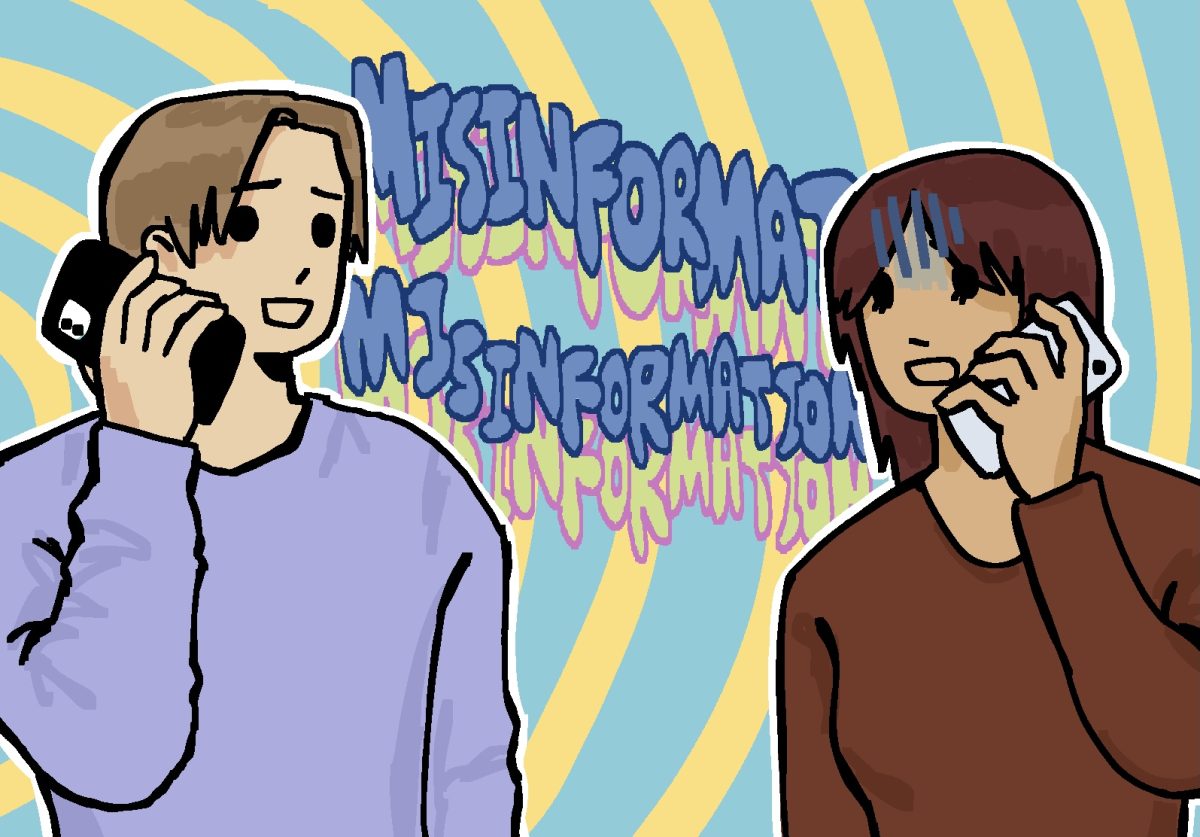Pali senior Clementine Causse has advocated for climate and human rights through student-led clubs and initiatives since her start at Pali four years ago.
Causse is co-president of Pali’s Human Rights Watch (HRW) club, which hosts one of the organization’s many Student Task Forces (STF). Members of the STF routinely meet with HRW workers to draft action plans that locally address the climate crisis, immigration policy and various other topics surrounding human rights.
In addition to her involvement in HRW, she leads Pali’s Clean Energy Task Force, which advocates for a switch to renewable energy and the implementation of a climate curriculum at Pali.
Steve Engelmann, Pali’s Advanced Placement Environmental Science teacher, attended a board meeting in 2020 to encourage administration to shift Pali from non-renewable to solar energy. There, he witnessed Causse assert her sentiments on the matter.
“Clementine was a ninth grader, and I thought she said better things than I did,” Engelmann said.
In recognition of her work with HRW, Causse received the 2023 Youth in Action for Human Rights award from Human Rights Educators USA on Jan. 31. This award is issued annually to two high school students who display exceptional leadership in human rights advocacy. According to Human Rights Educators USA, Causse was chosen due to her initiatives in student protests, letter writing campaigns and the Clean Energy Task Force.
Causse was also one of three Pali seniors awarded the first Resilient Palisades Environmental Advocate Award in May of 2024. In addition to her work in the Clean Energy Task Force, Causse was applauded for her leadership in bringing “Thrift for the Planet,” a nationwide sustainable consumption campaign, as well as an anti-Willow Project letter writing campaign to Pali.
Anushka Malhotra works as a youth advocacy assistant for HRW, where she oversees and advises many STFs, including Pali’s. Malhotra has worked with Causse since Causse’s freshman year, and observed how she progressed and expanded the chapter.
“She was a key part in establishing the Clean Energy Task Force and does a lot of the work for that,” Malhotra said. “But she is also just a really good role model for younger students looking to get involved.”
Malhotra added that Causse’s unique drive for activism, particularly regarding the climate crisis, contributed to her success within Pali’s STF chapter.
“Her passion really comes through,” Malhotra said. “She’s not only an enthusiastic leader who’s great at bringing people together, but she has a ton of information to give students. She does her research and knows a lot on these topics.”
Causse said her passion for social and climate justice motivates many of her endeavors.
“In this kind of work, it’s like taking three steps forward and two steps back, but I really love it so much,” Causse said. “I think it’s so important, and it keeps me going. I know that I’m going to keep doing this for the rest of my life.”
To that end, Causse has worked extensively to organize various advocacy-based events at Pali. She helped stage multiple protests over the years to bring attention to the climate crisis. She also helped to organize tent events at Pali, which give students an interactive outlet for environmental and human rights information.
Recently, Causse helped Engelmann and other Pali environmentalists organize a Pali period celebrating Earth Day, with a focus on climate and environmental justice education. Causse said this is only the beginning of what she aims to accomplish in terms of implementing climate education throughout the school. She and the Clean Energy Task Force have also implemented a climate curriculum, requiring the incorporation of environmental education across all subjects and grade levels at Pali.
The concept of the climate curriculum was first introduced at the aforementioned 2020 Pali Board of Trustees meeting. An official committee to kickstart the initiative began convening this year and consisted of students and staff such as Engelmann and Causse. Causse explained that climate change, as a global crisis, is a relevant and critical topic to be addressed in education, beyond offering environmental courses.
“We’re trying to integrate climate into every subject [and] every grade level to make climate education more normalized,” Causse said.
She emphasized the importance of this project in raising a new generation of climate leaders to combat escalating environmental degradation.
“Education is the foundation of change,” Causse said. “So the only way we can get real change is by making sure the next generation of young people are knowledgeable and feel confident in their ability to do something.”
Causse said student involvement through the STF, Climate Curriculum Committee and Clean Energy Task Force is influential in successful advocacy at Pali.
“It’s [the students’] school; everything exists here for the students,” Causse said. “So if you show that something is important to you, we have an incredible administration, and they will listen and care. It’s just about getting that momentum and making sure it stays.”
Engelmann said these student ideas have an impact on teachers and administration.
“The one thing that [teachers] are one hundred percent in charge of is how we teach,” Engelmann said. “So, when the kids are saying, ‘here’s what we want you to teach us,’ that’s where student involvement is really influential. And when the principal is hearing about a bunch of different proposals, you need a big group of kids coming in to bring attention to [these initiatives].”
Malhotra also highlighted the opportunities that advocacy through Pali’s STF opens up to those involved.
“This is really a time where high schoolers start to figure out what specifically they’re passionate about when it comes to advocating for human rights or social justice,” Malhotra said. “[Working with STF,] they can have a tangible impact through policy change.”
Causse and Engelmann said that the opportunity for new leadership in reform movements at Pali is abundant and critical as Causse and other student leaders approach graduation.
“There’s a lot of work to be done, but we’re in a different place than we used to be,” Engelmann said. “ Progress is being made, and it’s really important for the kids to see and act on that too.”
Editor’s note: Causse was a Tideline staff writer in 2021-22.








